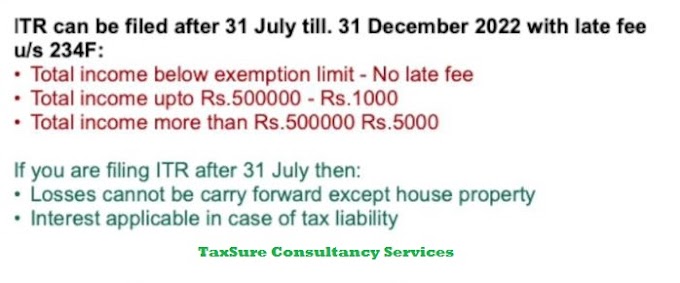What is tax audit?
The provisions for an Income Tax audit are covered under section 44AB of the Income Tax Act of 1961. The Income Tax audit is an examination of an individual’s or organisation’s tax returns by any outside agency to verify that all the income, expenditure and deduction information are filed correctly. Tax audits have been made mandatory by the Income Tax Act that states that all taxpayers are required to get the accounts of their business or organisation audited according to the provision of the act.
Under section 44AB, the audit aims to ascertain the factual veracity of returns filed and the accomplishment of other requirements as per applicable rules. The Chartered Accountant performing the tax audit has to submit all his/her findings and observations in the form of an audit report. The audit report is given as per format available in the form numbers 3CA/3CB and 3CD.
Section 44AB
Section 44AB gives the provisions concerned to the class of taxpayers who are required to get their accounts audited from a chartered accountant.
What is the objective of Tax Audit?
The objectives of Tax Audit are as follows:
- A proper system of tax audit would ensure that all the businesses maintain the books of accounts and all other revenue/expense records properly.
- A proper tax audit would also ensure that the total income and the claims for deduction are correctly and accurately entered by the businessmen.
- Tax audit restricts the chance of fraudulent practices.
- Tax audit facilitates the administration of tax laws by proper presentation of accounts before tax authorities and save the time of assessing officers engaged in carrying out routine verifications.
Who is covered by tax audit?
Tax Audit is applicable to certain classes of individuals which are mentioned under Section 44AB of the IT Act. Thus, as per the regulations of Section 44AB of the Income Tax Act, 1961, following is the list which outlines the classes of people who have to compulsorily follow the income tax audit procedures and get their accounts audited:
- An individual who in engaged in business and the annual turnover of his/her business is Rs.1 crore and above.
- An individual, who is a professional, i.e. engaged in any profession and his income receipts in a year aggregate Rs.50 lakhs and above.
- An individual who qualifies for the presumptive taxation scheme under Section 44AD but later claims that the profits for said business is lower than the profits calculated in accordance with the presumptive taxation scheme. This is also applicable in case the income on record is more than the amount which is tax-free or not chargeable for taxation.
- If the assesse who is qualified under the presumptive taxation scheme but opts out of it after a specified period, he would lose the ability to revert back to the presumptive taxation scheme for a continuous term of 5 assessment years after the decision to opt out is taken.
- An individual who qualifies to choose the presumptive taxation scheme of selection under Section 44AE but then claims that the profits for such business are lower than the profits calculated in accordance with the presumptive taxation scheme of section 44AE.
- An individual who qualifies to choose the presumptive taxation scheme of selection under Section 44BBB but then claims that the profits for such business are lower than the profits calculated in accordance with the presumptive taxation scheme of section 44BBB.
What are the form numbers 3CA/3CB and 3CD?
The tax audit reports conducted by a registered chartered accountant are to be presented in a prescribed format. Under section 44AB of the IT Act, the form that is prescribed for the audit report is Form No. 3CB and the prescribed particulars are to be reported in the Form No. 3CD.
In some cases when a person wishes to get their accounts audited under any law other than 44AB, then the form prescribed for audit report is Form No. 3CA and the prescribed particulars are to be reported in the Form No. 3CD.
What is the due date by which a taxpayer should get his accounts audited?
Any person/persons covered under the section 44AB should get their accounts audited and should also obtain the audit reports on or before 30th September of that particular year, i.e. the due date of filing the return of the income.
For example, Tax audit report for the financial year 2010-11 corresponding to the assessment year 2011-12 should be obtained before 30th September, 2011.
The tax audit report is to be electronically filed by the chartered accountant to the Income Tax Department. After the filing of the Income Tax Report by the chartered accountant, the taxpayer has to approve the submitted reports using the e-fling account with the Income Tax Department.
What is the penalty for not getting the accounts audited?
According to the section 271B, if a person who is required to comply with the section 44AB fails to get their accounts audited in any given year, the following penalties are imposed on that person:
- 0.5% of the total sales in case of a business organisation or 0.5% of the total receipts in case of profession of the current financial year.
- The business may be fined with an amount of Rs.1,50,000.
However, according to the section 273B, no penalty would be imposed on the person if valid reason for such failure is proved.
Thus, tax audit is a very important requirement for individuals who are required to undergo such an audit. Failure to comply with the income tax rules would attract penalty and individuals wishing to avoid any penalty should ensure full compliance with all the rules of the income tax audit.





0 Comments